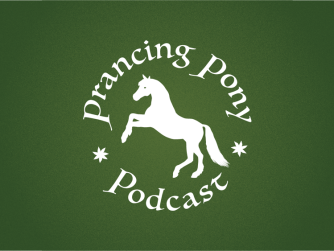In the second half of Chapter 9 of The Silmarillion, “Of the Flight of the Noldor”, the exiles continue down the road to certain doom, spurred on by Fëanor’s oath. We witness the terrible Kinslaying at Alqualondë, hear what Mandos has to say about that, and see the straw that broke Fingolfin’s back. Also, we date ourselves terribly with some appropriate music references.
For the essay “Fëanor and Melkor: so different, so alike,” referenced in our discussion of the burning of the ships at Losgar, please see the blog Middle-earth Reflections (middleearthreflections.wordpress.com) by listener Olga P.
Recommended Reading:



I recently discovered the podcast and am working my way through the Silmarillion episodes. I was intersted in your discussion regarding Feanor’s purpose in burning the ships of the Teleri at Losgar. You mentioned that there was no purpose to it other than gratuitous destruction, and an overt signal to Fingolfin, as the Noldor on the shores of Aman had no way to retrieve the ships. But I think Feanor may have had another motivation, linked to the Doom of Mandos: by burning the ships rather than just abandoning them he was ensuring it was impossible for any with him to change their mind and seek to return to Aman. His action then was motivated by ‘the fear of treason’, that his followers or even his sons would forsake him. So evil ends – the destruction of the un-recreatable sub-creations of the Teleri and possibly even the death of his son – were already coming to pass in fulfilment of the Doom.
Like Hernan Cortes is said to have done.
I realize I’m only, like, 4 or 5 years late to this party, but an absent point about Feanor’s cupability needs to be raised here. You are not “wrong” when you say he is committing many unforgiveable sins, but you are also not completely correct in dumping the lion’s share of responsibility at his feet. What often happens in these discussions is sides line up against one another and extremes such as “guilty” or “innocent,” “monster” or “saint” get volleyed back and forth and most if not all nuance gets lost. And sometimes the elephant in the room gets lost, too, which, IMHO, is the case here. The ****VALAR**** always seem to escape the bulk of the blame they deserve in this Feanor tragedy, which gets me to another pet peeve of mine regarding a lot of unnecessarily black and white Tolkien discussions: the tendency to say the lines between good and evil are clearly drawn in his stories. They are NOT. At least, not a starkly as so many claim. There ****IS**** moral ambiguity in the legendarium for those willing to open their eyes to it. For example, at the root of much of Feanor’s malfeasance, is the Valar’s pathological altruism, or their purity of heart or “goodness.” They are so saintly they do not understand the nature of evil, and this character flaw in the Powers of Arda is what starts and guides Feanor down his path to ruin. Tolkien was clearly putting warnings in his mythology about being so blindly virtuous, and I could give some not entirely PC real-world examples, but I think everyone enjoying this podcast can imagine them on their own. I believe you have rightly criticized Manwe and crew elsewhere, but this critical connection between their behavior and Feanor’s is unfortunately lacking in this discussion. Hope I don’t sound too critical, because this project is a great listen and thoroughly enjoyable. I just had to interject this point, which is sadly lacking in so many Tolkien conversations.
*Culpability. Ahem.
Several years late as well but I absolutely agree! Will add, the Valar say that the Noldor are free to leave as they were free to come, but do not offer to return them by the same methods by which they were brought – they did not cross the Helcaraxe nor sail to Valinor, and by not offering to ferry them across by some method or other they push the first domino in Feanor’s attempts to return to Middle-earth.
Olwe and the Teleri were under no obligation to provide Feanor’s means of leaving and this does not absolve Feanor of what he did, but the Valar very were obligated to, IMO.
Not to mention the fact that the Valar were obligated to rein in Melkor from his destruction – after all, even if we accept the Noldor brought their fate on themselves, the Valar still abandon the Sindar and Dwarves of Beleriand. If Manwe is indeed lord of Arda as he claims, he was responsible for it – a responsibility he seems to abdicate because “Feanor did bad.”